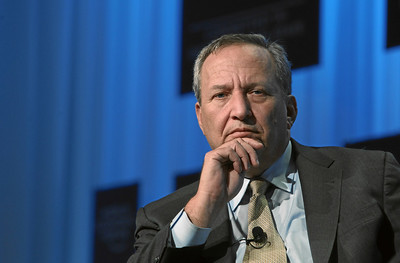Shockingly, the guy who spent years going on BloombergTV and being wrong about inflation went on BloombergTV, was wrong about inflation.
Our old pal Larry Summers just loves to make inflation predictions based on terrible assumptions. The latest instance? Speculating on BloombergTV that “The risks of actually going as far with [loosening] monetary policy as the Fed seems to think that it will are pretty significant in terms of having an increase in inflation.” To translate, Summers thinks the Fed seriously risks a new bout of inflation if it continues cutting interest rates.
The issue is that Larry’s belief that lower interest rates will likely cause inflation is premised entirely on a tight labor market being a driving cause of inflation. That simply is not the case; the Phillips curve, which plots the relationship between inflation and unemployment, has been broken for years in the United States. Trusting the traditional relationship between inflation and unemployment is wrongheaded.
Summers also “reiterated his view that the Fed is underestimating the neutral rate, or the long-run rate at which policymakers see their benchmark as consistent with maintaining 2% inflation.” However, this point elides whether 2 percent is actually an ideal inflation rate to aim for. I’ve writtenbefore that the 2 percent target is arbitrary and should be changed to better balance inflation management with employment, the other part of the Federal Reserve’s mandate. And a lot of prominent economists have since voiced similar thoughts, including former IMF chair Olivier Blanchard and former CEA chair Jason Furman (in a rare instance of agreement with RDP), along with Nobel laureates Paul Krugman and Richard Thaler. If he continues basing his forecasts on a 2 percent inflation target, Summers should first be asked to explain why 2 percent is the optimal target, and to preferrably do so in a way that doesn’t rely on the roundness of the number or simple intransigence.
PHOTO CREDIT: “Lawrence H. Summers – World Economic Forum Annual Meeting Davos 2010” by World Economic Forum is licensed under CC BY-NC-SA 2.0.

